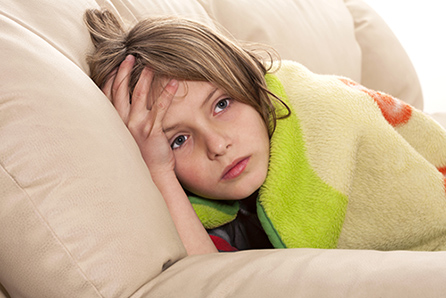
One of the great traditions of childhood is going to summer camp and learning about the great outdoors while making new friends. On the downside, your child is mixing with dozens of other campers and is being exposed to a wide variety of potential diseases, including viruses and bacteria that can trigger an ear infection.
Why Did This Happen At Camp?
Referred to as acute otitis media, middle ear infections occur when bacteria or viruses travel into the Eustachian tube from the mucus generated in the nose. The middle of the ear is normally dry and clear, but it becomes prone to infection when unable to clear itself of pathogens. In a camp-style environment, children are more likely to pass along bacteria and viruses that end up making their way into the ear through the nose.
Antibiotics May Not Be The Answer
The cause of your child’s ear infection can’t be determined just by looking at the ear canal. For this reason, it’s recommended that the child’s immune system be given some time to overcome the illness. In a joint agreement, the American Academy of Pediatrics and the American Academy of Family Physicians published guidelines that state fewer prescriptions should be used to fight ear infections.
Nearly 60 percent of all ear infections are caused by bacteria, while the rest are triggered by a virus. For cases caused by a virus, antibiotics are completely useless. Taking antibiotics when you don’t need them can lead to your child developing a resistance to these types of medications, making them less effective when they’re actually needed.
Studies show that about 80 percent of middle-ear infections end up going away after a week. Nearly 60 percent of children affected by an ear infection show improvement after only 24 hours, with or without antibiotics. If a doctor can’t find proof that an ear infection is bacterial, then you can treat the symptoms yourself with ear drops or ibuprofen. Of course, if no improvement occurs, then antibiotics may be necessary, especially if a viral cause for the infection isn’t determined.
Preventing Recurring Ear Infections
While some children simply have genetics that led them to suffer from more ear infections that others, parents can take steps to reduce their child’s risk of catching one. Regardless of whether or not they’re more susceptible, children who have been exposed to second-hand smoke are more likely to suffer ear infections. Vaccines such as the flu shot or the pneumococcus shot can help to reduce the type of virus and bacteria that causes ear infections.
When your child is younger, “breastfeed your child for at least four months” to increase the protective power of the baby’s immune system. Also, once your child is twelve months or older, you should make sure that they stop using a pacifier, which increases the risk of recurring ear infections.
Doctors and researchers state that nearly 70 percent of the risk for ear infections lies with hereditary causes. However, heredity isn’t a guarantee that your child will suffer from frequent ear infections. By doing your part, you help to reduce the chance that a hereditary trait won’t end up being a factor in your child’s health.
Frequent Ear Infections Require An ENT Specialist
Anyone suffering from recurring ear infections should visit an ear, nose and throat specialist to ensure that the problem doesn’t end up creating more serious health issues down the line.
Houston Sinus & Allergy specializes in treating nasal and sinus conditions and providing allergy care. Our practice is committed to helping you find long term relief from your symptoms. Dr. Nguyen is a Board Certified ENT – Head and Neck Surgeon with extensive training & experience in diseases of the ears, nose & throat.
Click here to book an assessment, or call us at the number posted at the top of the page.
